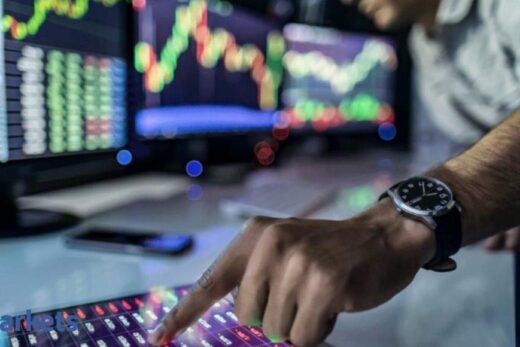Transcript
Hi everyone and welcome to episode 126 of the ET Wealth Wisdom podcast
I am Tania Jaleel
The manic ups and downs of cryptocurrencies have been in news lately
Are you someone who is thinking of putting some money in cryptocurrencies?
Cryptocurrencies are a new investment class, with very little data for fundamental analysis or past performance.
So it will be difficult for a new investor to make an informed decision
In this week’s ET Wealth edition, Babar Zaidi wrote about the rules one must follow while crypto trading
Here’s what to keep in mind when entering this high-risk high-reward arena.
Don’t take very big bets
The phenomenal returns given by some cryptos in the past one year are mouth watering.
Rs 10,000 invested in Dogecoin six months ago is now worth Rs 5.75 lakh.
But don’t get carried away by these numbers.
Invest only what you are willing to lose
Even if you have a high risk appetite, start trading with small amounts.
Don’t put more than 2% of your overall portfolio in cryptos say financial advisers
After you get familiar with the arena, read up about various coins and understand their value and prospects, before you allocate more.
Be ready for extreme volatility
Investing in cryptocurrencies is the best way to learn about them.
But it is a high-risk high-reward game and you must be able to digest very high volatility.
As the May crash showed, an overnight fall of 70-80% is also a possibility.
Keep in mind that even a bluechip like bitcoin is down 48% from its April high of Rs 50 lakh.
Use trustworthy platforms
The crypto space is not regulated in India and new outfits are mushrooming every day.
Though the Supreme Court has struck down the RBI ban on cryptos and the government has hinted that it will follow a calibrated approach towards regulating the industry, investors need to be careful when choosing the intermediary.
Keep in mind that investing through an overseas platform may require greater compliance on the tax front.
Don’t act on tips without verifying
The crypto space suffers from a severe lack of credible information.
Investors are dependent largely on unverified information on social media.
Self-styled crypto analysts create whatsapp groups packed with their accomplices who vouch for their accuracy.
These analysts trap gullible investors, first by charging a fee for the tips and then using them for their pump-and-dump operations.
As a rule, you should verify the information before you invest
Check the market cap and trading volumes of the coin. A low market cap and insignificant daily volumes are obvious red flags
Focus on bluechips
Like the stock markets, the crypto market also has bluechips, mid-caps and penny coins.
Don’t get tempted into buying obscure coins just because you can get a lot of them at a low price. Bigger coins may be costlier but are more stable.
In any case, you can buy in fractions so don’t worry about the price.
Bitcoin is the bluechip of the crypto space and drives the overall market sentiment.
Focus on the bluechip coins like Bitcoin and Ethereum, with some of your money in emerging counters like Dogecoin
Keep abreast with global developments
Even though you may be buying and selling in India, the crypto market is spread across the world.
Any global development can impact prices, so one needs to be abreast with what is happening in key markets like the US, Singapore and Europe.
An alert investor will not get caught on the wrong foot.
It helps that crypto trading is 24×7, so one can act immediately unlike stock markets where one has to wait for trading to open the next day.
Don’t ignore the tax
Last but not the least, don’t ignore the tax payable on the income from crypto trading.
Even though cryptocurrencies are not specifically mentioned in the Income Tax Act, income in any form from any source is taxable unless specifically exempted under the act say tax experts
Cryptos are not considered currency by the RBI, so they must be treated as capital assets.
This means short-term gains will be added to income and taxed at normal rates while long-term gains will be taxed at 20% after indexation.
A lot depends on the volumes and frequency of trading, which may lead to the income being treated as business income
And on that note that will all for this week
Come next week for more wealth wisdom



